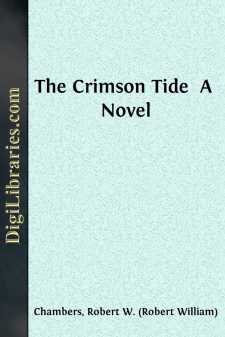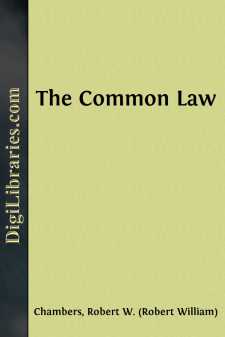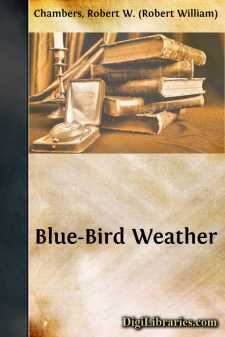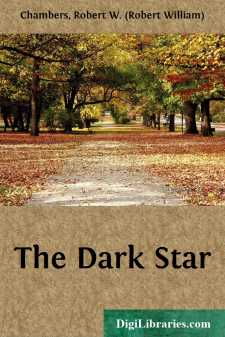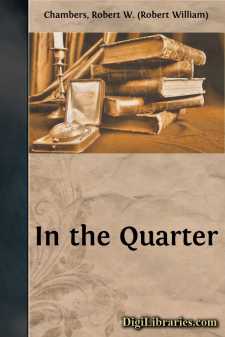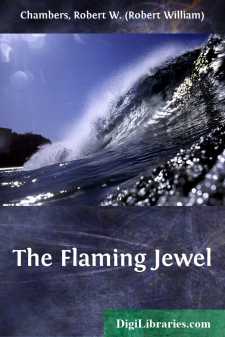Categories
- Antiques & Collectibles 13
- Architecture 36
- Art 48
- Bibles 22
- Biography & Autobiography 813
- Body, Mind & Spirit 142
- Business & Economics 28
- Children's Books 17
- Children's Fiction 14
- Computers 4
- Cooking 94
- Crafts & Hobbies 4
- Drama 346
- Education 46
- Family & Relationships 57
- Fiction 11829
- Games 19
- Gardening 17
- Health & Fitness 34
- History 1377
- House & Home 1
- Humor 147
- Juvenile Fiction 1873
- Juvenile Nonfiction 202
- Language Arts & Disciplines 88
- Law 16
- Literary Collections 686
- Literary Criticism 179
- Mathematics 13
- Medical 41
- Music 40
- Nature 179
- Non-Classifiable 1768
- Performing Arts 7
- Periodicals 1453
- Philosophy 64
- Photography 2
- Poetry 896
- Political Science 203
- Psychology 42
- Reference 154
- Religion 513
- Science 126
- Self-Help 84
- Social Science 81
- Sports & Recreation 34
- Study Aids 3
- Technology & Engineering 59
- Transportation 23
- Travel 463
- True Crime 29
Robert W. (Robert William) Chambers
Robert William Chambers (1865-1933) was an American artist and writer best known for his collection of weird and supernatural short stories, "The King in Yellow" (1895). This work influenced the horror genre, blending gothic fiction with elements of mystery and psychological horror. Chambers also wrote numerous romance and adventure novels, achieving commercial success during his lifetime.
Author's Books:
Sort by:
FOREWORD An American ambulance going south stopped on the snowy road; the driver, an American named Estridge, got out; his companion, a young woman in furs, remained in her seat. Estridge, with the din of the barrage in his ears, went forward to show his papers to the soldiers who had stopped him on the snowy forest road. His papers identified him and the young woman; and further they revealed the fact...
more...
CHAPTER I A MAKER OF MAPS There was a rustle in the bushes, the sound of twigs snapping, a soft foot-fall on the dead leaves. Marche stopped, took his pipe out of his mouth, and listened. Patter! patter! patter! over the crackling underbrush, now near, now far away in the depths of the forest; then sudden silence, the silence that startles. He turned his head warily, right, left; he knelt noiselessly,...
more...
CHAPTER I There was a long, brisk, decisive ring at the door. He continued working. After an interval the bell rang again, briefly, as though the light touch on the electric button had lost its assurance. "Somebody's confidence has departed," he thought to himself, busy with a lead-weighted string and a stick of soft charcoal wrapped in silver foil. For a few moments he continued working,...
more...
It was now almost too dark to distinguish objects; duskier and vaguer became the flat world of marshes, set here and there with cypress and bounded only by far horizons; and at last land and water disappeared behind the gathered curtains of the night. There was no sound from the waste except the wind among the withered reeds and the furrowing splash of wheel and hoof over the submerged causeway. The...
more...
Not the dark companion of Sirius, brightest of all stars—not our own chill and spectral planet rushing toward Vega in the constellation of Lyra—presided at the birth of millions born to corroborate a bloody horoscope. But a Dark Star, speeding unseen through space, known to the ancients, by them called Erlik, after the Prince of Darkness, ruled at the birth of those myriad souls destined to be...
more...
All day Sunday they had raised the devil from attic to cellar; Mrs. Farren was in tears, Howker desperate. Not one out of the fifteen servants considered necessary to embellish the Seagrave establishment could do anything with them after Kathleen Severn's sudden departure the week before. When the telegram announcing her mother's sudden illness summoned young Mrs. Severn to Staten Island,...
more...
``Your father will be delighted to take you wherever there is a probability of breaking both your necks, my dear,'' said Mrs Dene. ``Griffin!'' said Ruth, giving her hand a loving little squeeze under the table. Loisl came up with his zither and they all made way before him. Anna placed a small lantern on the table and the light fell on the handsome bearded...
more...
CHAPTER I WHEN Mrs. Greensleeve first laid eyes on her baby she knew it was different from the other children. "What is the matter with it?" she asked. The preoccupied physician replied that there was nothing the matter. In point of fact he had been admiring the newly born little girl when her mother asked the question. "She's about as perfect as they make 'em," he concluded,...
more...
To R. T.Three Guests at dinner! That's the life!—Wedgewood, Revere, and Duncan Phyfe! IIYou sit on Duncan—when you dare,—And out of Wedgewood, using care,With Paul Revere you eat your fare.From Paul you borrow fork and knifeTo wage a gastronomic strifeIn porringers; and platters rareOf blue Historic Willow-ware. IVBanquets with cymbal, drum and fife,Or rose-wreathed feasts with riot rifeTo...
more...
I Like a man who reenters a closed and darkened house and lies down; lying there, remains conscious of sunlight outside, of bird-calls, and the breeze in the trees, so had Drene entered into the obscurity of himself. Through the chambers of his brain the twilit corridors where cringed his bruised and disfigured soul, there nothing stirring except the automatic pulses which never cease. Sometimes, when...
more...


